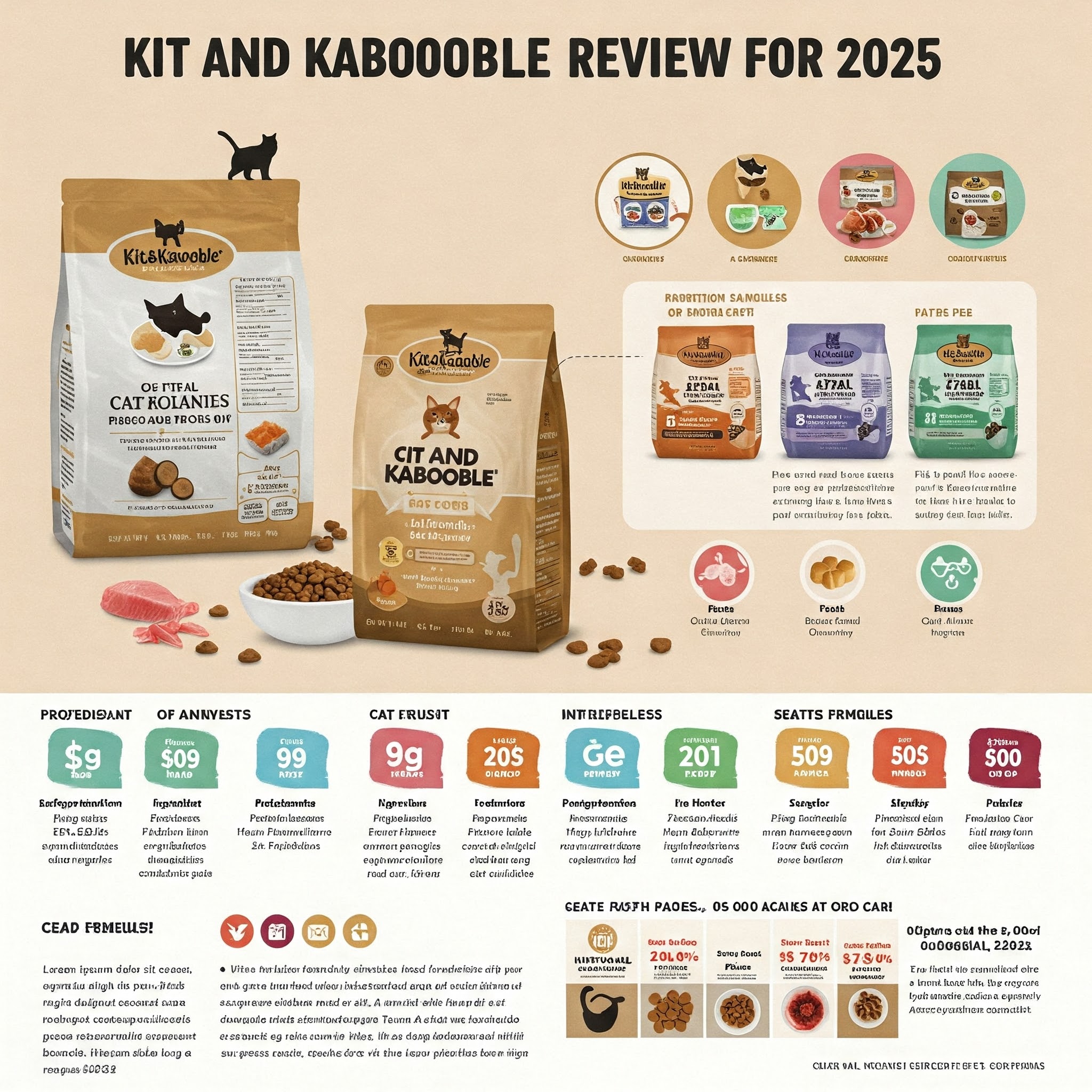If you’re searching for an affordable dry cat food that offers complete and balanced nutrition, Purina’s Kit and Kaboodle Cat Food might be on your radar. This budget-friendly option is designed to meet the nutritional needs of adult cats without breaking the bank. But is it the right choice for your feline companion? Let’s delve into the details.
What is Kit and Kaboodle Cat Food?
Purina’s Kit and Kaboodle Cat Food is a dry kibble formulated to provide 100% complete and balanced nutrition for adult cats. It boasts a blend of flavors, including poultry, liver, and ocean fish, all presented in fun, crunchy shapes that cats find appealing. The food is crafted in Purina-owned USA facilities, ensuring adherence to industry standards for quality and safety.
Nutritional Profile
Each cup of Kit and Kaboodle Cat Food contains approximately:
-
Calories: 398 kcal
-
Protein: 28% (dry matter basis: 31.82%)
-
Fat: 11% (dry matter basis: 12.5%)
-
Fiber: 3% (dry matter basis: 3.41%)
-
Moisture: 12%
These values indicate that the food is designed to support the maintenance of adult cats, providing essential nutrients to keep them healthy.
Ingredients Breakdown
The primary ingredients in Kit and Kaboodle Cat Food include:
-
Ground yellow corn
-
Corn gluten meal
-
Soybean meal
-
Meat and bone meal
-
Poultry by-product meal
While these ingredients provide essential nutrients, some, like meat and bone meal, are considered low-quality animal protein sources. Additionally, the food contains artificial colors such as Red 40, Yellow 5, and Blue 2, which are added to appeal to consumers rather than for nutritional purposes.
Pros of Kit and Kaboodle Cat Food
-
Affordability: One of the most budget-friendly options available.
-
Complete Nutrition: Meets the nutritional levels established by AAFCO for adult cat maintenance.
-
Palatability: Many cats enjoy the taste and texture, often finishing their meals quickly.
Cons of Kit and Kaboodle Cat Food
-
Low-Quality Ingredients: High in plant-based proteins and includes meat by-products.
-
Artificial Additives: Contains artificial colors and preservatives.
-
Potential Health Concerns: Some cats may experience digestive issues or other health problems.
Customer Feedback
Reviews for Kit and Kaboodle Cat Food are mixed. Many cat owners appreciate its affordability and the fact that their cats enjoy it. However, some have reported health issues such as urinary tract infections, lethargy, vomiting, and diarrhea. Veterinarians generally agree that while the food isn’t inherently harmful, it’s not the optimal choice for long-term feeding.
Frequently Asked Questions
-
Is Kit and Kaboodle Cat Food suitable for kittens?
No, Kit and Kaboodle Cat Food is formulated for adult cats. Kittens have different nutritional needs and should be fed a diet specifically designed for their growth and development.
-
Can I feed Kit and Kaboodle Cat Food to my senior cat?
While Kit and Kaboodle Cat Food is designed for adult cats, senior cats may have different dietary requirements. It’s best to consult with your veterinarian to determine if this food is appropriate for your senior cat.
-
How should I transition my cat to Kit and Kaboodle Cat Food?
When introducing a new food, it’s important to do so gradually. Mix a small amount of Kit and Kaboodle Cat Food with your cat’s current food, gradually increasing the proportion over 7-10 days to allow your cat’s digestive system to adjust.
-
Where can I purchase Kit and Kaboodle Cat Food?
Kit and Kaboodle Cat Food is available at various retailers, including major pet supply stores and online platforms. Be sure to check availability in your area.
Conclusion
Kit and Kaboodle Cat Food offers a cost-effective solution for cat owners seeking basic nutrition for their pets. However, due to its reliance on low-quality ingredients and the inclusion of artificial additives, it may not be the best choice for cats with specific dietary needs or sensitivities. For cat owners seeking higher-quality nutrition, considering premium brands with higher meat content and fewer fillers may be beneficial. Always consult with your veterinarian before making significant changes to your cat’s diet.
